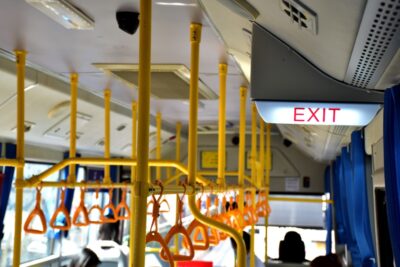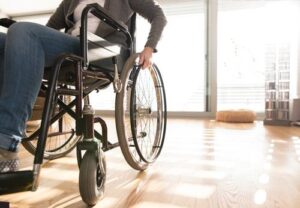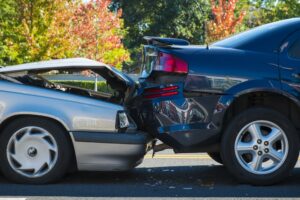
Thousands of people travel through the metro Atlanta area every day on MARTA buses and trains, mostly without incident. But buses sometimes collide with other vehicles, and trains can hit each other or derail. These sorts of accidents have a high potential for causing serious injuries requiring hospitalization, surgery, and months or years of expensive ongoing rehabilitation and treatment.
The financial burden is enormous, but you can hold MARTA and other responsible parties accountable for your injuries. You can get money to pay for your medical costs, lost wages and other losses you suffer because of the accident. You need to speak with an Atlanta public transport accident lawyer.
At John Foy & Associates, we’ve made a career out of helping accident victims get the money they need to put their lives back together. We started as a small local law firm over 20 years ago, and we now are one of the largest and most well respected law firms in Georgia.
We have handled many cases involving public transportation injuries. We’d like to give you a free consultation to show you how we can help you too. Call us at 404-400-4000 and get your free consultation today.
What Makes Public Transit Accidents Different than Car Accidents?
Public transit trains and buses transport a high volume of people, but they are not equipped with the same safety equipment as a passenger car. They typically do not have seat belts or air bags, and some passengers may be standing in the aisles.
A MARTA bus fully loaded with passengers can weigh almost as much as a semi-truck, making it especially dangerous in a collision. And because of its height, buses are more likely to tip over or roll than a passenger car.
Trains present their own set of hazards. They can derail, and trains cannot stop quickly, making it difficult for drivers to respond to sudden hazards such as people or cars on the tracks. When a public transit train strikes another vehicle, it may derail, injuring the train passengers. The accident is likely to be fatal for the passengers in the other vehicle.
Public transit accidents are also different because of their sheer size. Dozens of people may be injured in a single bus or train wreck, and there are likely to be multiple conflicting witness accounts. A typical transit accident case includes multiple parties, government bodies and agencies, along with their insurance companies.
Claims against government bodies are complicated and follow different procedures than ordinary accident claims. The entire process is extremely difficult to navigate on your own, which is why we recommend that you get legal help as soon as possible.
Get the strong arm
What Types of Public Transit Accidents Are There?
Injuries relating to public transit in the City of Atlanta aren’t limited to collisions involving buses and cars. Many other types of accidents can lead to serious or even fatal injuries:
- Train derailments
- Accidents involving public transit vehicles and pedestrians
- Slip and fall accidents on buses and trains
- Accidents in which trains strike other vehicles as they’re crossing the tracks
- Sudden lurching or swaying movements that cause injuries
- Items falling from storage areas
What Should I Do If I’m in an Accident Involving Public Transit?
First and foremost, you must get emergency medical treatment for yourself and anyone else who needs it. However, if your injuries are not severe and you don’t have to go to the emergency room right away, there are some simple steps you can take to advocate for yourself. This includes the following:
- Make sure the driver or train conductor knows you have been injured. Get their name and badge number.
- Make sure the driver reports the accident to police, as they are legally required to do.
- When the police arrive on the scene, be sure your name is included in the police report. There are often many people injured in a public transit accident, and having your name on the police report makes it easier to document and prove that you were injured.
- Talk to people at the scene who might have seen what happened, including other bus passengers. Find out what they observed, and write down their names and contact information.
- Use your cell phone camera to take photos and/or video of the accident scene, including damage to vehicles and other property.
- See a doctor. Some types of injuries are not immediately apparent and can get worse as time passes. A doctor can give you a thorough evaluation and get you started on treatment right away. Be sure to save all receipts and reports from medical providers.
It’s also important to make an appointment with an experienced personal injury lawyer as soon as possible after the accident. A lawyer puts an experienced negotiator on your side who can navigate the legal system and stand up to insurance companies who don’t want to pay you what your claim is really worth.
What Kinds of Costs Can I Recover?
Georgia law allows you to recover all of the costs resulting from your accident, whether you were a passenger, a pedestrian, or the driver or passenger of a car involved in an accident with a MARTA bus. This might include:
- Medical expenses
- Prescription drug costs
- The cost of physical and rehabilitative therapy
- The cost of mental health treatment for conditions related to the accident
- Lost wages, if you had to miss time from work because of the accident
If your injuries were severe, the local courts might also award you additional large amounts of money for pain, suffering, disability and other losses. We know that money can never make up for what you lost in your accident, but it can go a long way toward alleviating financial stress and helping you get the care you need.
Talk to an Atlanta Public Transport Accident Lawyer for Free
If you’ve been injured in a public transit accident, you can bet that MARTA will have lawyers on their side right away. Don’t put yourself at a disadvantage. Before you make a statement or talk to the insurance company, get an experienced public transport lawyer on your team. At John Foy & Associates, we offer free consultations to discuss your case and go over your options.
Call us at 404-400-4000 or fill out the form to your right and get your FREE consultation today.
(404) 400-4000 or complete a Free Case Evaluation form





